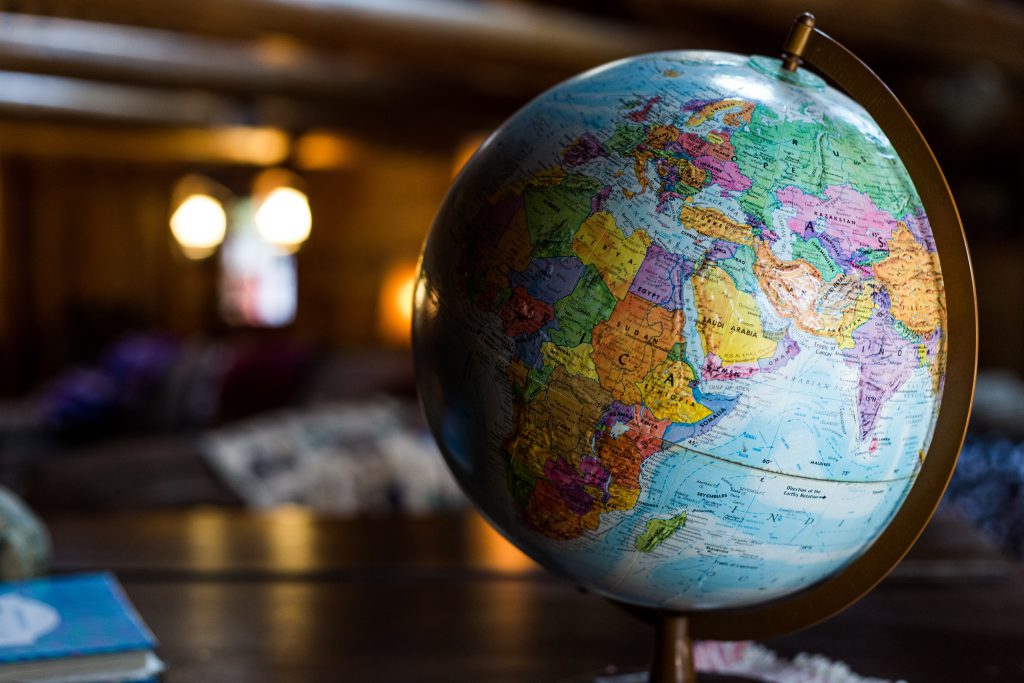
For many of us, the world has become very small over the last few weeks. Confined by the walls of our homes, we’re simultaneously more isolated than ever from the world around us and yet more unified in shared experience. Similarly, the pandemic has demonstrated both how interconnected communities across the globe are and the shortcomings of our global systems in tackling Coronavirus.
The UN has stressed that the impacts of Coronavirus will be felt most strongly by those most vulnerable to health and economic shocks. Having requested US$2 billion in March to launch a COVID-19 Humanitarian response plan, UN development agencies had to repeat calls for aid weeks later due to a lack of financial commitment from donor communities[1].
At a time where British citizens have never been more grateful for the NHS, there is a stark reminder that free and universal healthcare is a privilege few across the world share. In the UK, we have 1 doctor per 348 people, in Cameroon and Central African Republic, it is 1 doctor in 10,000[2]. A major concern is the threat of outbreak in refugee camps. In Greek camps that are six times over capacity, social distancing and hygiene measures are an impossible privilege[3]. So far there have been few cases within these camps, but fears remain that it is only a matter of time before the virus spreads. Alongside the health ramifications of coronavirus, the economic impacts of public health measures will also be felt more acutely in countries with fewer financial resources to draw on than Western European nations. Many developing countries are saddled with debt to multilateral institutions or developed nations. In January 2020, the Jubilee Debt Campaign calculated that a single economic shock could see servicing of external debt absorb 17.4% of government expenditure across 63 developing nations by 2022[4]. This figure is higher even than in 1998, before the significant debt cancellation that came at the urging of the Jubilee 2000 campaign[5].
Whilst G20 finance ministers have now agreed to suspend debt repayments until the end of 2020, these payments will be added to future repayments over the next 2-4 years with added interest[6]. This will put governments of some developing nations in the impossible position of having to choose between spending on essential health and social care provision and meeting their debt repayments.
Despite these pressing concerns, it is important that meeting the needs of the vulnerable around the world is done in partnership with developing nations. Robtel Neajai Pailey writes for Al-Jazeera “Ordinary Africans, and their counterparts in Asia, Latin America and the Caribbean, are not navel-gazing or waiting around for the “mighty” Global North – itself in the bullseye of the virus – to come to the rescue.”[7]
With the epicentre of the crisis found in the Global North, we are seeing more strongly a reversal of historic aid and development relationships. For example, Taiwan, very much a “developing country” less than a generation ago, is now leading a global response to coronavirus. Through adopting stringent control and contain measures, Taiwan avoided a complete lockdown, has reported only six deaths, and is now dispatching millions of face-masks to the US and Europe[8].
Similarly, humanitarian assistance has included both Cuba and Somalia sending doctors to Italy during the peak of the outbreak to treat patients[9]. In the UK, churches have received offers of aid and assistance from partners across the Global South recognising it is here, in Europe, where the crisis is currently most critical.
There are certainly causes for concern regarding the impact of coronavirus in developing nations, and actions the Global North can be taking to assist its neighbours. However the response to this crisis must be characterised by humility and equality to ensure true partnership in global relationships.
To sign a petition to Rishi Sunak, the Chancellor of the Exchequer, to cancel rather than suspend debt repayments see here: https://jubileedebt.org.uk/actions/stop-coronavirus-debt-disaster
[1] https://www.unicef.org/press-releases/un-agencies-issue-urgent-call-fund-global-emergency-supply-system-fight-covid-19
[2] https://data.worldbank.org/indicator/SH.MED.PHYS.ZS
[3] https://www.theguardian.com/global-development/2020/apr/07/coronavirus-doesnt-respect-barbed-wire-concern-mounts-for-greek-camps
[4] https://jubileedebt.org.uk/report/the-increasing-global-south-debt-crisis-and-cuts-in-public-spending
[5] https://jubileedebt.org.uk/report/the-increasing-global-south-debt-crisis-and-cuts-in-public-spending
[6] https://jubileedebt.org.uk/press-release/g20-suspends-debt-payments-more-action-needed
[7] https://www.aljazeera.com/indepth/opinion/africa-saving-pandemic-200408180254152.html
[8] https://www.theguardian.com/world/2020/apr/25/why-do-female-leaders-seem-to-be-more-successful-at-managing-the-coronavirus-crisis
[9] https://www.aljazeera.com/indepth/opinion/africa-saving-pandemic-200408180254152.html
